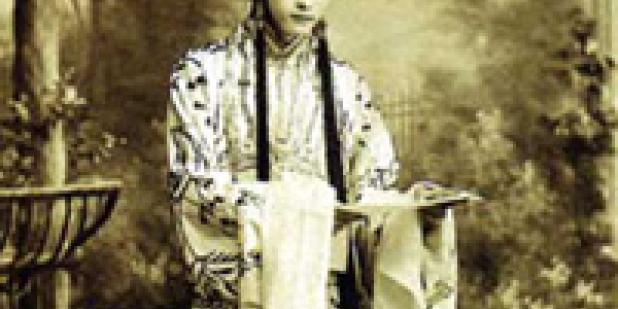Happy Lunar New Year from the USC US-China Institute!
Winds, Dreams, Theater: An Archaeology of Spatiality of Emotion in Early Modern China
Ling Hon Lam will speak on a specific spatial structure of emotion—namely, theatricality—pertaining to Chinese society at the turn of the seventeenth century at UCLA.
Where

This talk re-conceives emotion less as an inner state of mind than as a spatial structure in which we find ourselves feeling along with others. This embedding structure is never abstractly ontological but subject to historical change. Professor Lam will concentrate on a specific spatial structure of emotion—namely, theatricality—pertaining to Chinese society at the turn of the seventeenth century. By "theatricality" he refers to a historical mode of spatiality in which emotion was perceived not as interior to oneself but as performed by the other and conversely, it was conceivable in oneself only as exhibited to an audience.
The historical peculiarity of theatricality, however, must be understood in the sedimentation of earlier modes of spatiality—which Professor Lam calls "winds" and "dreamscapes" from which theatricality emerged. How should we differentiate theatricality from other topos (in both senses of the word) it seems to be anachronistically juxtaposed with? More important, how should we explain this anachronism in both history and our accounts of emotion and Chinese theater? To approach these issues, Professo Lam will take the Peony Pavilion (Mudanting, 1598) as the case in point, excavating it as an archaeological site of stratified topoi of emotion in correspondence with the architectural transformations of theater in sixteenth- and seventeenth-century China.
Ling Hon Lam is an assistant professor of Chinese Literature in the Asian Studies Program, Vanderbilt University. An An Wang Postdoctoral Fellow of the Fairbank Center of Chinese Studies at Harvard University and a fellow of the Newhouse Center for the Humanities at Wellesley College this year, he is completing a book manuscript on theatricality and the spatiality of emotion in early modern China. His second project concerns the fate of reading in late imperial and modern Chinese media culture. His publications include "The Matriarch's Private Ears: Performance, Reading, Censorship, and the Fabrication of Interiority in The Story of the Stone" (HJAS 65.2), "Bao-yu's Multimedia Classroom: Reading, Performance, and the Vicissitudes of the Voice from The Story of the Stone to Its Film Adaptations" (forthcoming in Approaches to Teaching The Story of the Stone), "Reading off the Screen: Toward Cinematic Il-literacy in Late 1950s Chinese Opera Film" (Opera Quarterly 26.2-3), and "Hybrid Commodities, Gendered Aesthetics, and the Challenge of Cross-Cultural Comparison: A Response to Moretti's 'The Novel: History and Theory'" (Literary Compass 7.9, co-authored with Dahlia Porter).
Featured Articles
We note the passing of many prominent individuals who played some role in U.S.-China affairs, whether in politics, economics or in helping people in one place understand the other.
Events
Ying Zhu looks at new developments for Chinese and global streaming services.
David Zweig examines China's talent recruitment efforts, particularly towards those scientists and engineers who left China for further study. U.S. universities, labs and companies have long brought in talent from China. Are such people still welcome?






